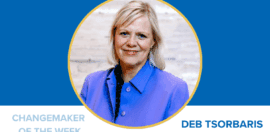More Planning Needed for Vulnerable During Disasters - VCOSS
16 June 2014 at 5:22 pm
Socially vulnerable people are being put at increasing risk due to a lack of planning around their needs during disasters and emergencies, Victorian Council of Social Service has revealed.
The revelation has come out of the report Disaster and disadvantage: Social vulnerability in emergency management.
VCOSS CEO Emma King said disasters and emergencies such as bushfires, floods and heatwaves could affect all Australians, no matter what their background or status – but they don’t affect us all equally.
“Experience and research tells us that disasters are in ‘profoundly discriminatory, both in where they strike, and in the way they affect people,” King said.
“Yet we still do not adequately prepare and plan for the needs of vulnerable people before, during and after emergencies.
“In the 2009 bushfires – one of Australia’s worst natural disasters, in which 173 people died – children, older people, people with physical or cognitive disabilities, and their carers made up nearly half the death toll.
“The 2009 and 2014 heatwaves exacted their worst toll on older people and those in poor health, those confined to poor quality rental ‘hot boxes’, those who were homeless, and those with mental health issues who may not have understood or acted on warnings and taken precautions.
“Most recently we’ve seen similar issues arise through the impact of the Hazelwood coal mine fire on the Morwell community. Morwell is one of the most disadvantaged towns in Victoria, with a greater proportion of low-income households, older people, people with disabilities, and unemployed people than the Victorian average.”
She said that while much had been done in Victoria in recent years to improve disaster prevent, preparation, response and recovery arrangements, there remained significant policy gaps around building the reslience and meeting the needs of socially vulnerable people.
“Policy makers, emergency management planners, the community sector and emergency services need to work together to prepare for and deliver enhanced emergency response, relief and recovery measures that specifically support socially vulnerable people,” King said.
“We must also communicate better with people who are socially vulnerable and at increased risk during the disasters and emergencies that are an all too common part of Australian life.
“We are limited on the action we can take to avert natural disasters. However, the scale of the human tragedy these disasters leave in their wake is something we can control. Improving the way we assist socially vulnerable people who are most at risk before, during and after these events is an important way of averting such tragedy.
“It is the smart and responsible thing to do, and it is time we did it.”
To view the full report, click HERE.







